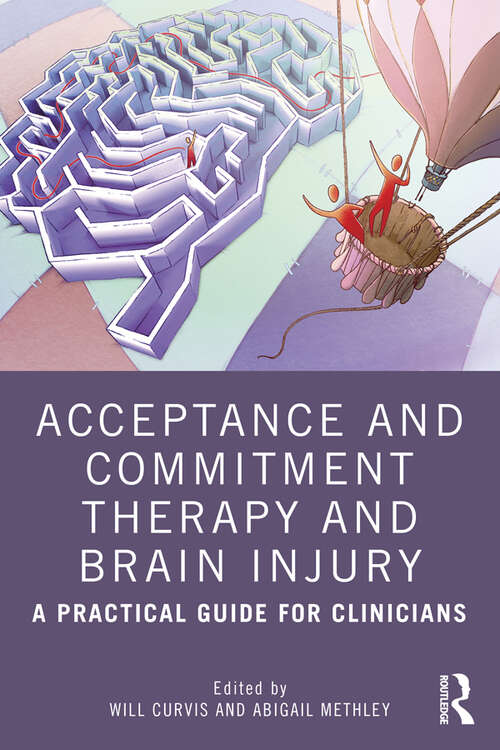Acceptance and Commitment Therapy and Brain Injury: A Practical Guide for Clinicians
By:
Sign Up Now!
Already a Member? Log In
You must be logged into Bookshare to access this title.
Learn about membership options,
or view our freely available titles.
- Synopsis
- Acceptance and Commitment Therapy and Brain Injury discusses how acceptance and commitment therapy (ACT) can be integrated into existing approaches to neuropsychological rehabilitation and therapy used with people who have experienced a brain injury. Written by practicing clinical psychologists and clinical neuropsychologists, this text is the first to integrate available research with innovative clinical practice. The book discusses how ACT principles can be adapted to meet the broad and varying physical, cognitive, emotional and behavioural needs of people who have experienced brain injury, including supporting families of people who have experienced brain injury and healthcare professionals working in brain injury services. It offers considerations for direct and indirect, systemic and multi-disciplinary working through discussion of ACT concepts alongside examples taken from clinical practice and consideration of real-world brain injury cases, across a range of clinical settings and contexts. The book will be relevant to a range of psychologists and related professionals, including those working in neuropsychology settings and those working in more general physical or mental health contexts.
- Copyright:
- 2022
Book Details
- Book Quality:
- Publisher Quality
- Book Size:
- 212 Pages
- ISBN-13:
- 9781000481969
- Related ISBNs:
- 9780367456313, 9780367456245, 9781003024408
- Publisher:
- Taylor and Francis
- Date of Addition:
- 11/30/21
- Copyrighted By:
- selection and editorial matter, Will Curvis and Abigail Methley
- Adult content:
- No
- Language:
- English
- Has Image Descriptions:
- No
- Categories:
- Nonfiction, Psychology
- Submitted By:
- Bookshare Staff
- Usage Restrictions:
- This is a copyrighted book.
- Edited by:
- Will Curvis
- Edited by:
- Abigail Methley
